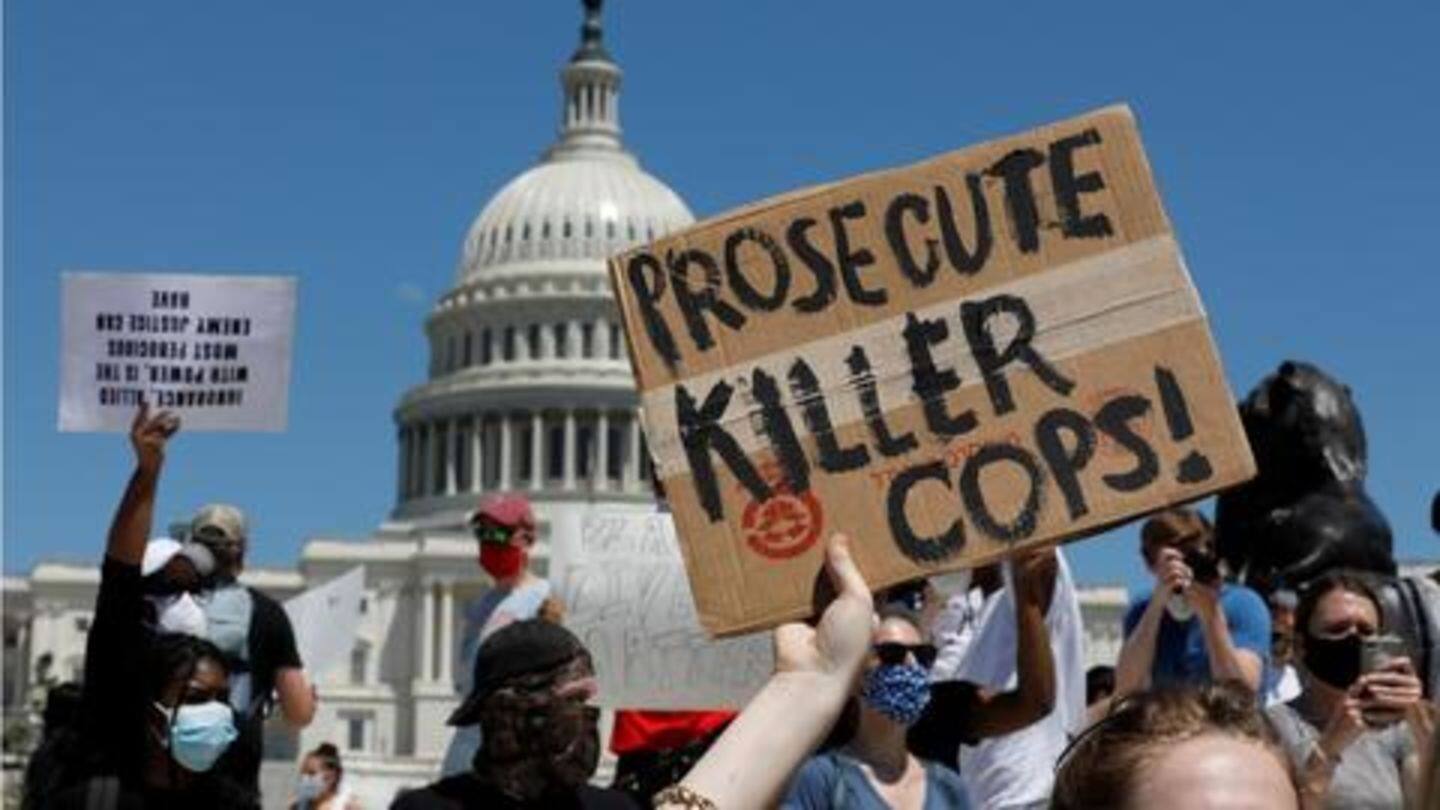
US cities order curfews amid protests against George Floyd's death
What's the story
As protests against the death of a Black man in police custody continued to intensify in the United States, multiple cities ordered curfews.
George Floyd (46) died after a white cop knelt on his neck for several minutes in Minneapolis.
The protests against anti-Black sentiment turned violent in many cities, with reports of rioting and looting.
Here are more details.
Context
What happened to George Floyd?
Floyd died on Monday after a police officer, Derek Chauvin (44), knelt on his neck for almost nine minutes. Floyd was being arrested for allegedly buying cigarettes with a counterfeit $20 note.
Videos of the incident, where Floyd can be heard complaining "I can't breathe," went viral.
Chauvin has since been fired and charged with murder. Three other officers have also been sacked.
Update
Protests spread to at least 30 US cities
Protests started from Minneapolis as Floyd's death represents widespread targeted violence towards the Black community.
Large protests have since spread to at least 30 cities across the US.
At least eight states—including Texas, Colorado, and Georgia—have called upon the National Guard to help handle the protests.
The National Guard was also deployed around the White House.
At least 25 cities have imposed curfews.
Minneapolis
Minneapolis saw less intense protests on Saturday
Reportedly, the violence in Minneapolis was largely pacified as around 700 National Guard officers were deployed.
According to AFP, police in riot gear continued to fire tear gas and stun grenades at protesters venting fury even on Saturday. The protesters defied 8 pm-6 am curfews on Friday and Saturday.
The city had faced four days of arson, looting, and vandalism since Tuesday.
Los Angeles
Los Angeles among worst-affected cities
Los Angeles in California has emerged as one of the worst-affected regions in the US compelling California Governor Gavin Newsom to declare a state of emergency in the city and activate the National Guard.
The city was placed under a curfew on Saturday from 8 pm-5:30 am.
There have been instances of arson and looting. The police baton-charged and fired rubber bullets at protesters.
Other cities
Night curfew in Chicago after protesters turn violent
Chicago's Mayor Lori Lightfoot on Saturday imposed a 9 pm-6 am curfew. She said, "I've seen protesters hurl projectiles at our police department...bottles of water, urine, and Lord knows what else."
In New York, a video showed a police car driving into a crowd of protesters. Protesters were seen jumping onto police cars. Mayor Bill de Blasio said officers did not start the situation.
Other cities
Philadelphia under curfew on Saturday and Sunday night
Philadelphia on Saturday enforced a curfew starting from 8 pm-6 am. The curfew will be re-enforced for Sunday night as well. Mayor Jim Kenney said the police will allow protests, but social distancing guidelines must be followed in view of the coronavirus pandemic.
A large crowd taunted National Guard officers outside the White House in Washington DC, for the second day on Saturday.
Information
San Francisco also orders curfew
San Francisco has also announced a curfew that will be enforced at 8 pm on Sunday after reports of looting and violence. Overnight curfews have also been declared in Portland, Louisville, among other cities, where the protests turned violent.
Trump’s statement
What has Donald Trump said?
Meanwhile, United States President Donald Trump said on Saturday evening that Floyd's death has "filled Americans with horror, anger, and grief."
"I stand before you as a friend and ally to every American seeking peace," he said adding, "I will not allow angry mobs to dominate—won't happen."
He also said that "looters and anarchists" were dishonoring the memory of Floyd.